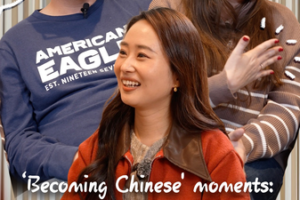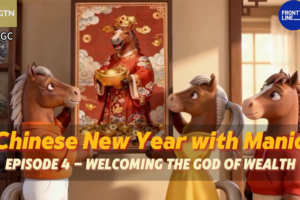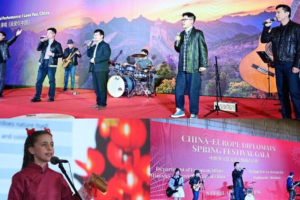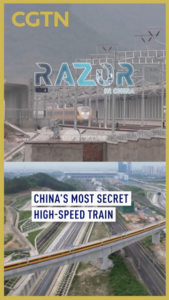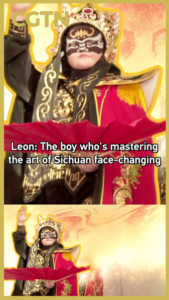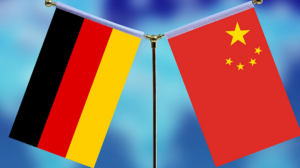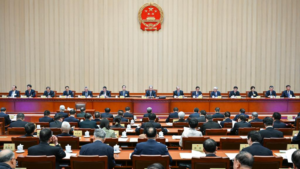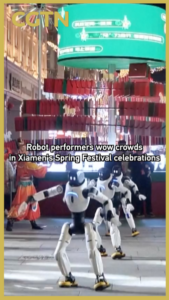
China’s 2025 Space Milestones: 92 Launches, Quantum Leaps, and Global Tech Leadership
China’s 2025 achievements include 92 space launches, breakthroughs in quantum computing, and record R&D investment, solidifying its global tech leadership.

NASA Delays Crewed Moon Landing to 2028, Adds Artemis III Mission
NASA adjusts Artemis timeline, postponing crewed lunar landing to 2028 and adding Artemis III for critical testing in 2027.

Pakistan-Afghanistan Border Crisis Escalates Amid Fresh Air Strikes
Recent Pakistan-Afghanistan border clashes escalate with fresh air strikes, civilian casualties, and urgent calls for dialogue amid rising regional tensions.

China’s Economy Expands 5% in 2025, Hits Record $20.44 Trillion GDP
China’s GDP grew 5% in 2025, reaching a record $20.44 trillion, driven by domestic consumption and strategic investments, according to official data.

African Expert Highlights China’s Green Energy Model for Southern Africa’s Transition
An African energy expert advocates for adopting China’s green energy strategies to boost Southern Africa’s sustainable development and climate resilience.

China’s EV Charging Network Hits 20.7 Million Connectors as Expansion Accelerates
China’s EV charging network expands to 20.7 million connectors, with 49.6% annual growth driving regional economic rebalancing and green transition.

Tensions Rise as Trump Criticizes Iran Talks Despite Mediator’s Claims
U.S. President Trump criticizes Iran negotiations despite Omani mediator’s progress claims, as regional tensions escalate and countries urge citizen departures.

Bill Clinton Denies Knowledge of Epstein Crimes in 2026 Testimony
Former U.S. President Bill Clinton testifies he had no knowledge of Jeffrey Epstein’s crimes during 2026 congressional deposition, amid ongoing political scrutiny.

China Achieves Record Air Quality in 2025, Officials Report
China’s air quality in 2025 marked the best levels since monitoring began, driven by renewable energy expansion and emission controls, officials announced.

China Launches National Initiative to Boost Student Health and Wellbeing by 2035
China’s new Healthy Schools Guideline mandates daily physical activity, mental health monitoring, and arts education as part of a 10-year plan to transform student wellbeing.

Japanese PM Faces Backlash Over Arms Export Policy Shift
Japanese Prime Minister Sanae Takaichi faces criticism for opposing Diet oversight on arms exports as LDP pushes to ease restrictions, sparking accountability concerns.

U.S. Medicaid Cuts Leave Millions Uninsured as Healthcare Anxiety Rises
11.8 million Americans face losing health insurance under 2025 Medicaid cuts, as healthcare affordability concerns hit record highs.

Brazil Rains Death Toll Reaches 68 in Minas Gerais
Heavy rains in Brazil’s Minas Gerais state have claimed 68 lives, with authorities warning of ongoing risks as rescue operations continue.

Rio’s Spring Festival Concert Bridges China-Brazil Cultural Ties
Rio de Janeiro hosts landmark China-Brazil cultural concert celebrating Lunar New Year and bilateral tourism initiatives in 2026.
Washington Art Exhibit Celebrates Year of the Horse with Pandemic-Inspired Themes
A Washington-based art exhibition marks the 2026 Year of the Horse, blending traditional symbolism with reflections on pandemic-era challenges and cross-cultural unity.

Haitian Healthcare Workers in U.S. Face Legal Uncertainty Amid TPS Debate
Haitian healthcare workers in the U.S. face legal uncertainty as the 2026 TPS policy debate continues, impacting critical frontline services.

Argentina’s Labor Reform Sparks Debate Amid Economic Push in 2026
Argentina’s Senate debates landmark labor reform in 2026, aiming to boost economic growth amid union opposition. A pivotal shift after 50 years.

Pakistan Escalates Conflict with Taliban, Declares ‘Open War’
Pakistan declares ‘open war’ against Taliban following border clashes, escalating tensions after failed 2025 ceasefire talks mediated by Qatar and Turkiye.

Paramount-Skydance Nears $110B Warner Bros. Discovery Takeover
Paramount-Skydance’s $110 billion acquisition of Warner Bros. Discovery could reshape the global media landscape, pending regulatory approval.

Clintons Testify in Epstein Probe as DOJ Faces Pressure Over Trump Ties
Bill and Hillary Clinton testify in Epstein probe as pressure mounts on the DOJ to address Trump’s alleged ties to the scandal.

